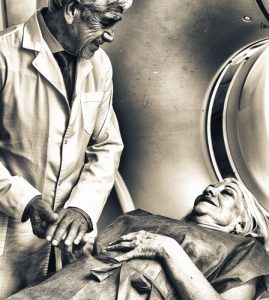Pain is a natural nerve reaction telling the body that there is damage to tissue. It is an essential warning device. It sometimes hastens death and lets the person know the body no longer is viable and sometimes in death it can be absent. Unfortunately, individuals cannot decide if pain will be present in their final days or not but every person has a right to die with as little pain as possible. Physicians and family need to ensure their loved one’s receive the necessary pain management.

Pain management should be simple but it is not always simple. Many individuals see pain differently. Pain for the most part is dependent upon the individual. This is why it is so crucial to express for the terminally ill or dying to express their levels of pain. Doctors may prescribe pain medication levels for an average curve and supply too little for someone who may have a lower tolerance for pain. It is important for individuals to let doctors know their pain level. They need to express the type of pain, the level of it, the place of it, and its duration.
Some may seek to hide their pain, fearing if they accept certain medications, they are hastening death, but the reality is pain management is not about giving up, but instead, living in comfort with what days remain. It is crucial and a right of every patient to be pain free or at least as pain free as possible. Families who see their loved ones suffer, need to be the voice of those to weak to express their pain and ensure the proper medications and pain relievers are supplied.
Many doctors may fear the issue of addiction with greater pain relievers, but the fear of addiction is mute once a person has reached the threshold of death. Death is coming and addiction of certain medications is not an issue nor ever should be. Addiction can become a topic for discussion for pain management of the living, but never should be an issue for the dying. Comfort and pain relief is the most important concern after someone has reached a certain point.
It is the duty of pastoral care givers and healthcare providers to provide the best comfort to the dying. Physically, pain relief is one of the most important elements of pastoral care. It is important to reduce or remove pain as much as possible for the dying so they may experience a death of peace and dignity when possible.

If you would like to learn more about our Pastoral Thanatology Certification or would like to become certified in this field of care of the dying, then please review AIHCP’s program and see if it matches your academic and professional goals. The program is for healthcare professionals and those involved in ministry and focuses on preparing individuals with the training and knowledge needed to help the dying and their families deal with end of life issues. The program is online and independent study and leads to a four year certification.
